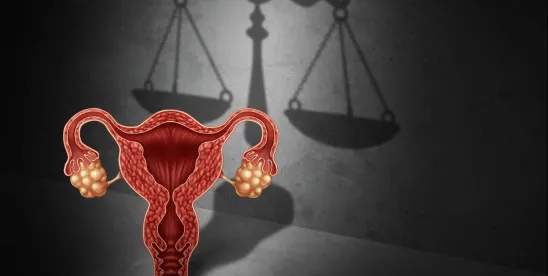When the U.S. Supreme Court overturned nearly 50 years of federal constitutional protection for abortion in Dobbs v. Jackson Women’s Health Organization, the majority may have sought to return the issue of abortion to “the people and their elected representatives,” but they likely did not intend for the “elected representatives” to be state supreme court justices.
Since Dobbs, proponents and opponents of abortion have ultimately battled before state supreme courts as opposed to state legislatures. And, increasingly, the “people” have turned to direct action in the form of ballot initiatives, bypassing their elected representatives altogether.
While some states have managed to pass new abortion bans since the Dobbs decision—Florida, Nebraska, North Carolina, and South Carolina—three of these bans (in Florida, Nebraska, and South Carolina) were swiftly challenged in state court to determine the enforceability of the bans on state constitutional grounds. Otherwise, for the most part, states can trace their abortion bans to pre-Dobbs legislative efforts or existing pre-Roe abortion bans, or, in the case of Arizona, both.
Earlier this month, state supreme court decisions in Arizona and Florida cleared the way for restrictive abortion bans to take effect soon. Yet both states also have ballot initiatives seeking to protect access to abortion, with Florida’s guaranteed to be on the November 2024 ballot due to a simultaneous Florida Supreme Court decision. Thus, each state has typified state efforts to determine abortion policy.
Arizona
On April 9, 2024, the Arizona Supreme Court’s decision in Planned Parenthood Arizona, Inc. v. Mayes,[1] invalidated an appellate-level injunction and paved the way for the state’s total prohibition on abortion to take effect. On March 30, 2022, Arizona’s then-Governor, Doug Ducey, signed into law a 15-week prohibition on abortion in anticipation of Roe being overturned. Once Dobbs invalidated Roe, Arizona then moved to enforce not only its 15-week ban but also its pre-Roe abortion ban that was originally enacted in 1864 and which had been enjoined since 1973.
Abortion rights groups challenged Arizona’s attempt to lift the injunction on its pre-Roe total ban, claiming that the later enactment of the 15-week ban repealed the earlier ban. The Arizona Supreme Court remanded the case to the district court, leaving open the possibility for the plaintiffs to challenge the ban on constitutional or other grounds since the scope of the review was limited to the issue of statutory interpretation. The Arizona Attorney General has signaled that the earliest the total ban could take effect would be June 27, 2024.[2]
The pre-Roe ban completely prohibits abortion, only allowing an exception to save the life of the pregnant person. There was initially some uncertainty as to whether the ban would be enforced, as Arizona Governor Katie Hobbs issued an executive order in June 2023 centralizing the enforcement of all abortion-related cases to the Arizona Attorney General, Kristin Mayes. Governor Hobbs and Attorney General Mayes had announced that they would not pursue enforcement of the state ban. However, some county-level attorneys general have taken issue with this position and may seek to enforce the law if abortions continue. It is unlikely that providers will take on the risk of possible enforcement after the law takes effect.
Abortion proponents say that they have collected more than the required number of signatures to qualify for a constitutional amendment that would protect access to abortion to appear on the state’s November 2024 election ballot, although those signatures have not been certified yet. In the meantime, the Arizona Legislature passed a measure to repeal the state’s pre-Roe ban, and Governor Hobbs on May 2, 2024. However, new Arizona laws that are enacted on a non-emergency basis typically take effect 91 days after the date of enactment; therefore, there may be a period of time when the full ban is enforceable in Arizona.
Florida
On April 1, 2024, the Florida Supreme Court issued two decisions impacting abortion and reproductive care in the state. First, the Court determined in Planned Parenthood of Southwest and Central Florida v. Florida that the state’s constitutional right to privacy did not extend to the right to have an abortion, deeming a trial court’s temporary injunction of the state’s 15-week ban improper (thus, triggering the state’s six-week ban to take effect 30 days from the date of the decision).[3] To arrive at this holding, the Court declined to follow its precedent. For example, in In re T.W.,[4] the Florida Supreme Court had previously recognized a right to abortion under the Privacy Clause within the Florida Constitution. In declining to apply this case, the Court in Planned Parenthood of Southwest and Central Florida determined that its earlier precedent had relied upon an understanding of the concept of privacy derived from Roe v. Wade, and thus, in light of Dobbs, the Court could arrive at a different conclusion.
Florida’s six-week ban went into effect on May 1, 2024. The six-week ban includes an exception for pregnancy as the result of rape, incest, or human trafficking until 15-weeks’ gestation.[5] However, to qualify for the exception, the victim must provide a copy of a restraining order, police report, medical records, or other evidence to show that the pregnancy was the result of rape, incest, or human trafficking. The six-week ban also includes language stating that any person who “willfully performs or actively participates” in an abortion can be prosecuted on a felony charge under the six-week ban. This language could be interpreted to include not only a physician but any medical professional, or even a friend or relative, involved in helping a pregnant person obtain an abortion.
Second, in a separate decision issued on the same day, the Court permitted a constitutional amendment that would protect the right to an abortion to appear on the state’s 2024 election ballot.[6] The issue came to the Court after the Florida Attorney General challenged the language of the proposed constitutional amendment as an effort to “hoodwink” Florida voters. The Florida Supreme Court found that the language met the state’s constitutional and statutory requirements and, thus, could be included on the ballot. Florida requires at least 60 percent of the vote in order to enact this constitutional amendment, which is a higher bar than state ballot initiatives in states such as Michigan and Ohio had to face.
Other Ballot Initiatives
In addition to Arizona and Florida, abortion proponents have organized to place constitutional protections for abortion and reproductive freedom before state voters. Maryland joins Florida as the only other state with a ballot initiative protecting access to abortion to be certified to appear before voters in the 2024 election. Otherwise, in addition to Arizona, ballot initiatives seeking to protect access to abortion are underway, but are still in the process of obtaining certification, in Arkansas, Colorado, Maine, Missouri, Montana, Nebraska, Nevada, and South Dakota. Three remaining states may seek to limit access to abortion through ballot initiatives—Iowa, Pennsylvania, and Wisconsin. So far, California, Michigan, Ohio, and Vermont have all used ballot initiatives to enshrine protections for reproductive health in each state, with attempts to limit abortion via ballot initiatives failing in Kansas and Kentucky during the 2022 and 2023 elections.
As ballot initiatives proposed by supporters of reproductive rights gain traction, anti-abortion advocates are considering adding competing ballot initiatives seeking to restrict access to abortion. In Arizona, for example, Republican lawmakers are considering such a proposal. In addition, an anti-abortion campaign in Missouri is attempting to dissuade Missourians from adding signatures to a pending ballot initiative to protect access to abortion by claiming that the initiative is an attempt to steal personal data.
The push for ballot access has also presented another opportunity for litigation. Anti-abortion state officials have sought to delay or invalidate ballot access through procedural challenges to ballot initiatives, such as refusing to approve ballot language needed to gather signatures—as was the case in Missouri and Montana—or refusing to validate signatures once collected, such as in Florida. However, in each case, the state supreme court intervened to allow the process to continue.
Looking Ahead: State Courts and “Personhood”
While the recent activity in Arizona and Florida may immediately affect access to abortion and reproductive health care, the decisions in Arizona and Florida could also foreshadow a new wave of litigation seeking to interpret “personhood” rights for embryos in the future. Arizona, for example, has a provision in its state code that requires the state to interpret its laws “to acknowledge, on behalf of an unborn child at every stage of development, all rights, privileges and immunities available to other persons, citizens and residents of this state.”[7] The law has been enjoined since 2022 but continues to be litigated. However, the injunction applies only “to abortion care that is otherwise permissible under Arizona law.” As a result of the Arizona Supreme Court ruling, the U.S. Court of District Court for the District of Arizona, where the case is pending, has ordered additional briefing.
In Florida, while the Florida Supreme Court allowed the constitutional amendment protecting access to abortion to appear on the ballot, in a footnote, the Court characterized the question of whether “unborn” persons have personhood rights as “unsettled.” And, in a dissent, one justice argued that the Florida Constitution “recognizes that “life” is a “basic right” for “[a]ll natural persons” and that “[o]ne must recognize the unborn’s competing right to life and the State’s moral duty to protect that life.”[8] If the ballot initiative passes in November, the same opponents of abortion who supported the Attorney General’s challenge to the language of the amendment could pursue litigation challenging the new amendment under this “personhood” theory.
ENDNOTES
[1] No. CV-23-0005-PR, Ariz. S. Ct. (Apr. 9, 2024).
[2] Arizona Attorney General, Arizona Abortion Laws (last visited Apr. 30, 2024).
[3] No. SC2022-1127, Fl. S. Ct. (Apr. 1, 2024).
[4] 551 So. 2d 1186 (Fla. 1989).
[5] See Fla. Stat. § 390.0111.
[6] Advisory Opinion to the Attorney General re: Limiting Government Interference with Abortion.
[7] Ariz. Rev. Stat. § 1-219 enjoined by Isaacson, et al., v. Brnovich, et al., No. CV-21-01417-PHX-DLR, AZ Dist. Ct. (July 11, 2022).
[8] Advisory Opinion to the Attorney General re: Limiting Government Interference with Abortion (Francis, J.) (dissenting).




 />i
/>i
